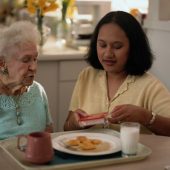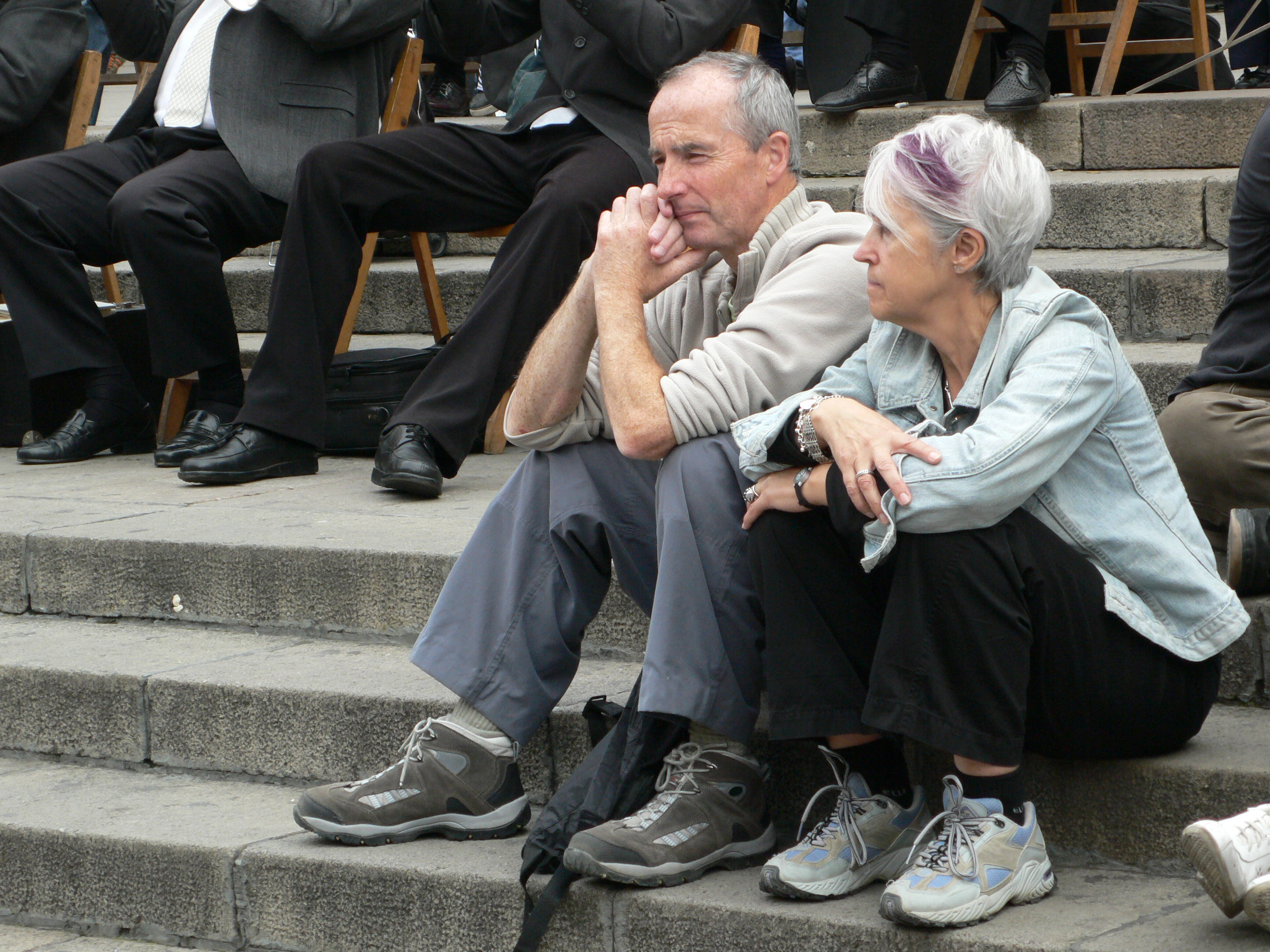
WEDNESDAY, April 27 (HealthDay News) — The growing number of people with Alzheimer’s disease in the United States means that more people are becoming caregivers, a responsibility that health experts warn can pose risks to body and mind.
But caregivers can take various steps to protect their health, says Rebecca Axline, a clinical social worker at the Nantz National Alzheimer Center in Houston.
To keep stress in check, for instance, she emphasizes the need to find time and ways to reenergize, to keep meaningful things in your life and to remain social and participate in your favorite activities.
Axline also offered communication techniques that can help reduce caregivers’ stress and frustration:
- Always identify yourself and call the person you’re caring for by name.
- Talk slowly and clearly. Use short sentences and break down instructions into steps.
- Ask one question at a time and wait patiently for a response. Repeat information and questions. Clarify and give visual clues, such as pointing to an object or location. Avoid vague words.
- Use positive rather than negative instructions, such as “walk carefully” instead of “don’t trip.”
- Don’t get into power struggles with the person, such as arguing about something that’s possibly been forgotten.
Getting adequate rest — at least seven to eight hours of uninterrupted sleep a night — and eating well, Axline said, also are key to keeping a caregiver’s body and mind healthy. If there’s no time to cook, caregivers should ask for help from family, friends or neighbors.
Building a support team is important, she said. The doctor and treatment team, including the social worker, for the person receiving care, as well as the local Alzheimer’s Association can help create a care program that works for the recipient and caregiver alike.
More than 5 million Americans have Alzheimer’s disease, a number that experts predict will rise to 16 million by 2050. Women are more likely than men to develop Alzheimer’s and are also more likely to become caregivers.
More information
The U.S. National Institute on Aging offers an Alzheimer’s caregiver guide.

